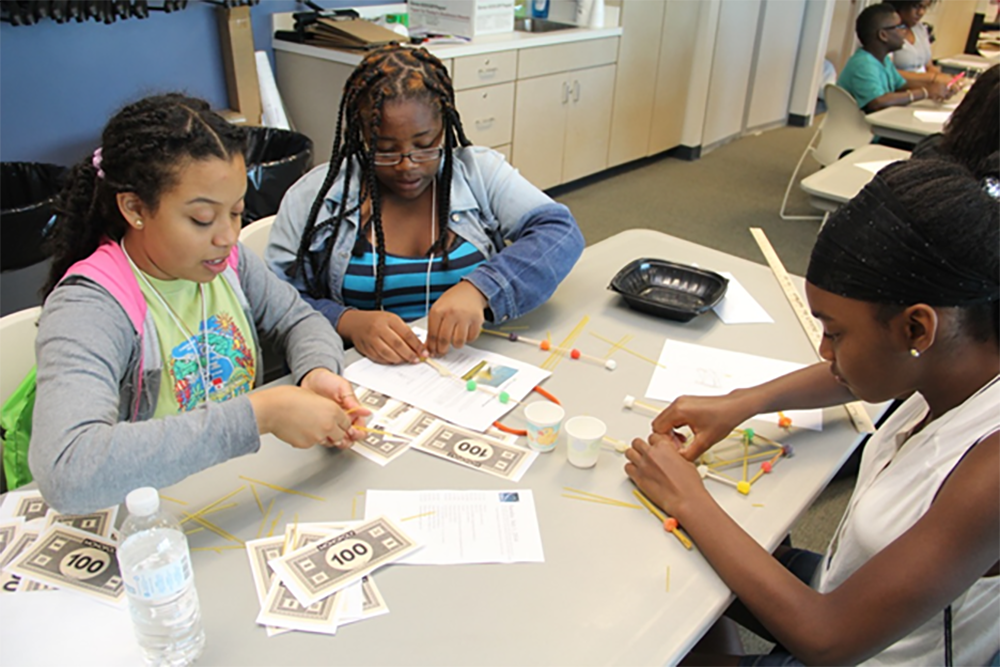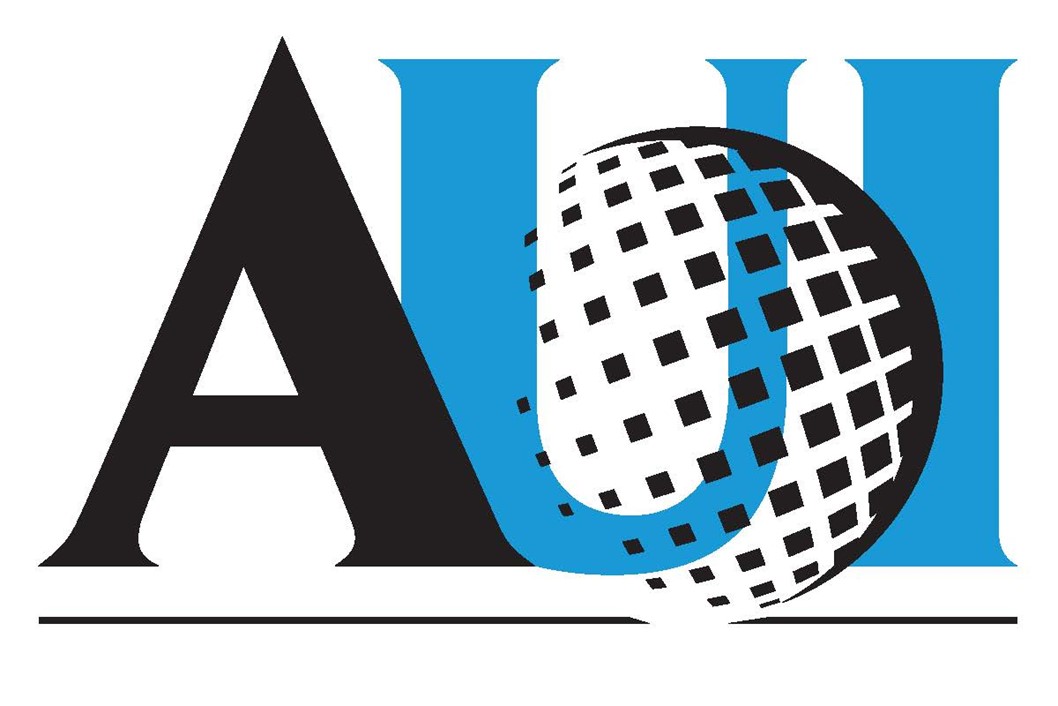A new study connects the black hole’s famous ring of light to a compact region that marks the likely base of the jet, bringing scientists closer to understanding how black holes power some of the brightest beacons in the universe.
Recent News
Magnetic Superhighways Discovered in a Starburst Galaxy’s Winds
Using the Atacama Large Millimeter/submillimeter Array (ALMA), an international team of astronomers has mapped a magnetic highway driving a powerful galactic wind into the nearby galaxy merger of Arp 220, revealing for the first time that its fast, molecular outflows are strongly magnetized and likely helping to drive metals, dust, and cosmic rays into the space around the galaxy.
Making Scientific Breakthroughs Possible in 2025
2025 was an incredibly productive year for AUI, marked by significant advances across astronomy, energy, advanced therapeutics, and STEM education and workforce development.
Heising—Simons Foundation Partners with AUI and the IAU to Boost Gender Equity Programs for Young Astronomers

The Heising–Simons Foundation (HSF) has awarded $126,500 to Associated Universities, Inc. (AUI) and the International Astronomical Union (IAU) to support two programs: the Women and Girls in Astronomy project and the IAU Junior Member Travel Grant Fund.
Women and Girls in Astronomy is a worldwide program of outreach events taking place over the course of a month, which encourages gender equality in astronomy by promoting an intersectional, inclusive framework that empowers all members of our community. This IAU-led program celebrates girls and women in astronomy and encourages girls to consider careers in the subject or in science in general.
Some of the HSF funding ($76,500) will be used to expand the reach of this program’s events worldwide over the next two years. These efforts will be managed through the North American Regional Office of Astronomy for Development (NA-ROAD) which is co-managed by AUI and its partners. Specifically, the funds will support a coordinator for the events and microgrants to individuals and organizations who propose activities promoting women and girls in astronomy.
Examples of past events include: public talks and outreach events featuring women astronomers; visits by women astronomers to classrooms; activities and workshops with students’ and children’s clubs; field trips for girls to science centers and planetariums; online or in-person “Question and Answer” sessions between women astronomers and students; networking and mentoring events for undergraduate and graduate women astronomers; and public stargazing with women astronomers.
The remaining $50,000 of the HSF funding will be used for the Junior Astronomers program during the IAU General Assemblies in Busan, Republic of Korea in August 2022 and in Cape Town, South Africa in 2024. The fund will support travel to the General Assemblies for astronomers at the postdoc or graduate level from underrepresented groups in the US.
It will also support invited trainers and speakers from industry and companies outside of astronomy for the Junior Members workshops. These workshops take place at the IAU Executive Committee Junior Members Working Group Meeting at the General Assemblies. The workshop topics include:
- Mental health management; time management; work-life balance
- Writing effective grant proposals
- Improving scientific writing skills
- Public engagement in astronomy; communicating research to the public
The funds will give an invaluable opportunity to early-career astronomers to network and meet colleagues from around the world, exchange their experiences, promote their research, and expand their knowledge in various areas of research.
“AUI is excited to partner with the IAU and HSF on these important initiatives,” says Tim Spuck, Director of Education & Public Engagement at AUI. “Diversifying the astronomy workforce and providing opportunities for early career exposure to international networking experiences is critical to the success of the field.”
“We are excited by the professional opportunities this will foster for young scientists with the travel grant fund, and for the Women and Girls in Astronomy project’s success,” says Debra Elmegreen, IAU President. “We very much look forward to the positive impact of the programs.”
Promoting gender equality in astronomy is a key goal of the IAU’s mission. In 2019, during the IAU’s centenary celebrations, 300 events were held in 70 countries, engaging over 20 000 people. These activities sought to promote discussion around gender equality and to inspire girls to pursue a career in astronomy.
Contributing to the ongoing efforts in this area, the Office for Astronomy Outreach (OAO) and the IAU Executive Committee Working Group on Women in Astronomy co-organize the Women and Girls in Astronomy IAU Global Outreach project, which takes place between 11 February and 8 March each year. In 2022 the project involved more than 250 events in almost 40 countries, including live interviews with female astronomers from around the world, an online campaign and a drawing contest.
More information
AUI is an independent, non-profit corporation founded in 1946 that specializes in the designing, building, and managing cutting edge research facilities and the development and implementation of innovative approaches to education, outreach, and workforce development. Currently, AUI manages two US-funded Research and Development Centers: The National Radio Astronomy Observatory (NRAO) and the Green Bank Observatory (GBO). NRAO is the North American partner in the management of the Atacama Large Millimeter/submillimeter Array (ALMA) in Chile. In addition, NRAO includes the Very Large Array (VLA), and the Very Long Baseline Array (VLBA), and GBO is home to the 100-meter Green Bank Telescope.
The IAU is the international astronomical organization that brings together more than 12,000 active professional astronomers from more than 100 countries worldwide. Its mission is to promote and safeguard astronomy in all its aspects, including research, communication, education, and development, through international cooperation. The IAU also serves as the internationally recognized authority for assigning designations to celestial bodies and the surface features on them. Founded in 1919, the IAU is the world’s largest professional body for astronomers.
Recent News
New Event Horizon Telescope Results Trace M87 Jet Back to Its Black Hole
A new study connects the black hole’s famous ring of light to a compact region that marks the likely base of the jet, bringing scientists closer to understanding how black holes power some of the brightest beacons in the universe.
Magnetic Superhighways Discovered in a Starburst Galaxy’s Winds
Using the Atacama Large Millimeter/submillimeter Array (ALMA), an international team of astronomers has mapped a magnetic highway driving a powerful galactic wind into the nearby galaxy merger of Arp 220, revealing for the first time that its fast, molecular outflows are strongly magnetized and likely helping to drive metals, dust, and cosmic rays into the space around the galaxy.
Making Scientific Breakthroughs Possible in 2025
2025 was an incredibly productive year for AUI, marked by significant advances across astronomy, energy, advanced therapeutics, and STEM education and workforce development.
